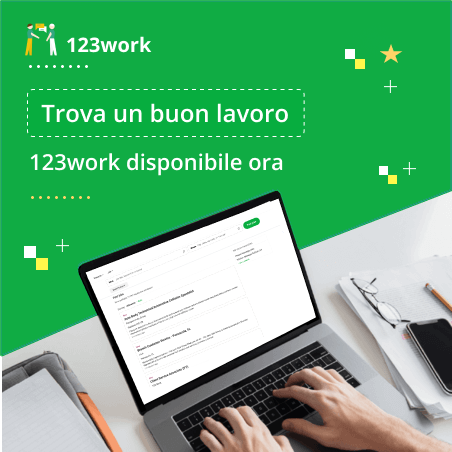.
WFP celebrates and embraces diversity. It is committed to the principle of equal employment opportunity for all its employees and encourages qualified candidates to apply irrespective of race, colour, national origin, ethnic or social background, genetic information, gender, gender identity and/or expression, sexual orientation, religion or belief, HIV status or disability.
ABOUT WFP
The United Nations World Food Programme is the world's largest humanitarian agency fighting hunger worldwide. The mission of WFP is to help the world achieve Zero Hunger in our lifetimes. Every day, WFP works worldwide to ensure that no child goes to bed hungry and that the poorest and most vulnerable, particularly women and Children, can access the nutritious food they need.
ORGANIZATIONAL CONTEXT
As a United Nations (UN) agency reaching more than 115 million nutritionally vulnerable and food-insecure people each year, WFP plays a critical role in multi-stakeholder efforts to address malnutrition. In 2021 alone, 22.3 million children under the age of 5 (CU5) and pregnant and lactating women and girls (PLW/G) were assisted through WFP-supported nutrition-specific programmes that aim to prevent underNutrition and treat moderate wasting across 51 countries.
Sustainable Development Goal (SDG) 2 aims to end all forms of malnutrition by 2030, including wasting, stunting, overweight and vitamin and mineral deficiencies. Childhood malnutrition is a major global development challenge, contributing to increased mortality, morbidity, impaired intellectual development, increased risk of disease in adulthood and suboptimal adult work and earning capacity. The world is currently off-track to meet the global target of having less than 5% of CU5 suffering from wasting by 2025 and less than 3% by 2030. At least 149 million CU5 are estimated to suffer from stunting, 170 million women are underweight and many more children and women have some form of micronutrient deficiency.
Women are particularly vulnerable to undernutrition due to their increased nutrient requirements for pregnancy, childbirth, and breastfeeding, yet are often not prioritized in policy and programming. Pregnant women require a diet with appropriate energy, protein, vitamins, and minerals to meet their own needs for health and wellbeing as well as for the growth and development of the foetus. Requirements are even higher during the first six months of breastfeeding. Poor nutrition during pregnancy and breastfeeding is known to have adverse short and long-term effects on the mother and the child, including increased risk of mortality, poor growth and development of the infant and longer-term health consequences. Maternal nutrition is an investment in both the mother and the child and will support ending the intergenerational cycle of malnutrition its negative effects.
Although wasting treatment coverage has steadily increased since 2010, reaching nearly 14 million children in 2021, the proportion of wasted children with access remains low at <25% globally. Challenges remain with nutrition programme delivery and continuum of care including fragmented approaches to service provision, capacity constraints, unpredictable financing, commodity shortfalls and supply chain challenges. In many fragile and conflict-affected settings where WFP operates, the health, food and social protection systems that are vital to prevent wasting are often dysfunctional, have collapsed or are non-existent leaving many nutritionally vulnerable children and women beyond the reach of basic health services, adequate age-appropriate nutritious diets and social care. Women and girls’ nutrition is sometimes forgotten when discussions place focus on Child Wasting services.
Effective prevention, early detection and treatment for wasting are much needed investments to save lives and support healthy growth and development. In the current challenging context of increasing needs and fundings constraints, the global nutrition community, including WFP, are working to scale-up wasting services and strengthen national systems and capacities. The WHO guideline for the prevention and management of wasting and nutritional oedema (2023) offers and opportunity to advance efforts to achieve SDG2 and have an impact on child and Maternal Nutrition through diversified approaches to prevention and supplement acute malnutrition.
JOB PURPOSE
The aim of this consultancy is to develop normative, agency specific and global guidance and gather learning from ongoing programmes, guide and support the development, piloting and roll-out of different tools to improve programme design and implementation, including the application of the new tools in WFP countries to undertake refinements as appropriate.
KEY ACCOUNTABILITIES (not all-inclusive)
1. Develop normative global and agency guidance on Maternal Nutrition and diets and on Child Wasting, accompanying dissemination plan and tools, and technical assistance to regional and country offices:
a) Lead technical input to the WHO operational guidance on management of Moderate Acute Malnutrition that accompanies the WHO Guideline for the prevention and management of wasting and nutritional oedema (2023). This will entail engagement with global stakeholder group of experts and consultation with country and regional offices.
b) Develop normative guidance on Maternal Nutrition to accompany the broader WFP wasting approach that is inclusive of prevention and supplementation for children and women. Integrate existing work on targeting and delivery tool for maternal programming into broader Maternal Nutrition guidance.
c) Conduct policy and programme review and analysis of Maternal Nutrition programming in select regions/countries to inform global approach
d) Conduct support missions to country office/regional bureau on adoption and implementation of Maternal Nutrition guidance and the MAM operational guidance
2. Support the dissemination of normative guidance and tools:
a) Develop and implement dissemination plan for the Maternal Nutrition guidance and the targeting and delivery tool to WFP regional and Country Offices, ensuring its use and applicability is understood and documented, and that necessary capacity strengthening of WFP staff on Maternal Nutrition programming is provided in compliment.
b) Develop dissemination and sensitization plan on the WHO MAM operational guidance as it relates to WFP programming targeted to regional bureau and country office.
3. Develop an implementation plan for BEP tool that includes key activities, milestones, timeframes and roles/responsibilities across CO/RB/HQ and across teams:
a) testing the new tool kit in two countries and
b) the Maternal Nutrition targeting and delivery tool in selected countries.
4. Collaborate across the Service on broader efforts to improve approaches on Maternal Nutrition, including targeting, evaluation, research and assessment of programme coverage, and SBC. Act as technical focal point for support teams within the Nutrition and Food Quality Service, including strategic partnerships, advocacy, communications, and resource mobilization.
5. Any other support that is required to the Service.
DELIVERABLES AT THE END OF THE CONTRACT
Normative guidance on Maternal Nutrition drafted and finalized. Normative guidance for global operational guidance on moderate acute malnutrition drafted and finalized, including dissemination plan and accompanying tools developed. Policy and programme analysis of Maternal Nutrition conducted in 5 countries. Implementation plan for testing the new tools in selected countries including timeframe, milestones, and roles/responsibilities. Report highlighting the key learnings from the roll-out of the Maternal Nutrition targeting and delivery tool in selected WFP Country Offices.
STANDARD MINIMUM QUALIFICATIONS
Education:
Advanced University degree in Nutrition, Public Health International Development Social Science, or other field relevant to international development assistance.
Experience:
Knowledge & Skills:
Languages:
English (Second UN language is desirable).DEADLINE FOR APPLICATIONS
18 June, 2024
.
WFP has a zero-tolerance approach to conduct such as fraud, sexual exploitation and abuse, sexual harassment, abuse of authority and discrimination. All selected candidates will be expected to adhere to WFP’s standards of conduct and will therefore undergo rigorous background verification internally or through third parties. Selected candidates will also be required to provide additional information as part of the verification exercise. Misrepresentation of information provided during the recruitment process may lead to disqualification or termination of employment
WFP will not request payment at any stage of the recruitment process including at the offer stage. Any requests for payment should be refused and reported to local law enforcement authorities for appropriate action.


